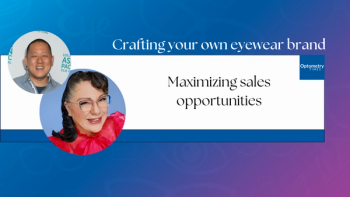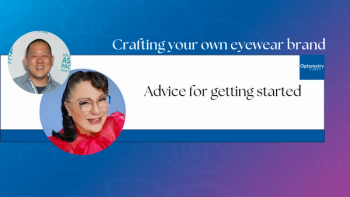
New Jersey ODs lose fight to opt out of vision plans
Last week, a bill allowing New Jersey optometrists to avoid joining vision care plans died on the desk of Gov. Chris Christie (R-NJ) in a pocket veto. The bill would have given ODs in the state the ability to participate in third-party medical insurance plans without being required to join accompanying vision care plans as well.
Newark, NJ-Last week, a bill allowing New Jersey optometrists to avoid joining vision care plans died on the desk of Gov. Chris Christie (R-NJ) in a
New Jersey Society of Optometric Physicians President George Veliky, OD, says that the practice of requiring participation in a vision care plan in order to participate in a medical care plan is discriminatory because ophthalmologists are not bound by the same requirement.
“As NJSOP President, I’d like to officially say that we were initially disappointed in our inability to ultimately move this legislationthrough to successful passage,” says Dr. Veliky. “We see this as a hurdle for our patients to unnecessarily have to overcome in that it can and will ultimately delay treatment in the many ‘acute’ cases we encounter on a daily basis (ie: corneal foreign bodies).”
The pocket veto came as a bit of a surprise, considering the overwhelming support for the bill on the legislative side.
“What I find very distasteful is that the bill was passed unanimously in both houses,” says Vice President of Monmouth Ocean Society of Optometric Physicians Steve Silberberg, OD, of Matawan, NJ, “and I was under the impression that the governor was supposed to represent the will of the people, but apparently that’s not the case.”
Recent news:
Dr. Silberberg speculated that the governor may not have even read the bill since he is currently running for president, and he likely had a lot of bills to address.
“I know he’s a busy man,” says Dr. Silberberg. “And I know politics is dirty, and there are powerful people on both sides of the equation-optometrists on one side and insurance companies that like to dictate what we do.”
Because other states have passed similar laws, Dr. Silberberg says he doesn’t understand why Gov. Christie did not sign the bill.
NJSOP Executive Director Howard Cooper told Optometry Times that the organization was surprised and disappointed by the outcome. Cooper says NJSOP’s legislative committee will meet in the coming weeks to discuss its next steps regarding the legislation.
“We promise our association members to once again work very closely with the key people in the Assembly and Senate to once again pursue our goal,” says Dr. Veliky. “We hope to continue to build off of the tremendous bipartisan legislative support and move forward with successful passage in this next session.”
Details on the bill
The bill,
Recent news:
The bill had bipartisan sponsors in both the State Senate and Assembly, and it passed in both houses before dying with Gov. Christie’s pocket veto. A
What this kind of law would mean for ODs
While insurers argued that it was about charging more for services, Dr. Silberberg says that the bill was all about having a choice. He says that like many ODs, he chooses not to participate in certain vision care plans due to low reimbursements.
As Dr. Silberberg previously noted, other states have passed similar laws, but he also says dentists have similar laws that allow them to opt out of dental insurance in favor of medical insurance.
“This is the way things are going-optometry is going toward a medical model,” he says. “If someone wants to practice that way, at least give him the choice.”
Dr. Veliky notes that New Jersey ODs did have two significant recent legislative successes.
“First, we were successful in re-obtaining the right to once again prescribe hydrocodone combination products (in spite of their federal reclassification as Schedule II products) in an effort to treat the painful ocular conditions we face with our patients,” he says. “Second, we were able to include very specific language into the physician’s assistant scope expansion legislation which prevents them from refracting and dispensing glasses, prisms and contact lenses (thereby preventing them from practicing optometry). This was a very important safeguard as this legislation was signed into law the same day our piece was pocket vetoed.”
Newsletter
Want more insights like this? Subscribe to Optometry Times and get clinical pearls and practice tips delivered straight to your inbox.













































